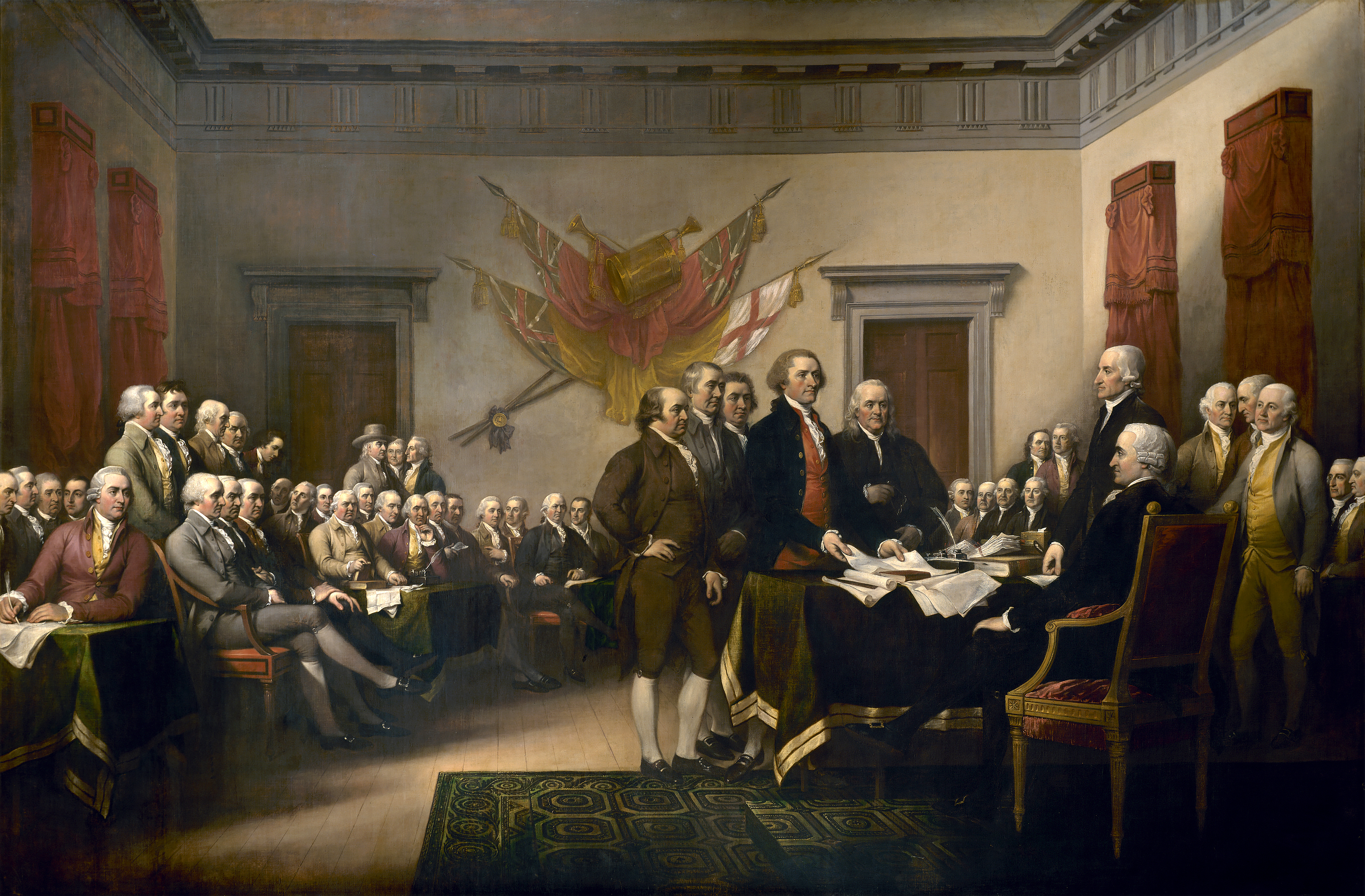Philosophy 101
- Introduction to Philosophy
- Ancient Greek Philosophy
- Renaissance and Enlightenment Philosophy
- Modern Philosophy
- American Philosophy
- Existentialism and Phenomenology
- Analytic Philosophy
- Contemporary and Postmodern Philosophy
- Eastern Philosophy
- Philosophy of Religion
- Philosophy of Science
American Philosophy
Philosophy and Revolution: The Role of Philosophical Thought in American Revolutionary Movements

Revolution establishing the United States of America.
Philosophy has played a significant role in shaping the course of history, particularly in the context of revolutionary movements. This unit explores the influence of philosophical thought on two major revolutionary periods in American history: the American Revolution and the Civil Rights Movement.
Philosophy's Role in the American Revolution
The American Revolution was not just a political and military struggle. It was also a battle of ideas, many of which were rooted in philosophical thought. Key figures such as Thomas Paine, Samuel Adams, and Benjamin Franklin were deeply influenced by the Enlightenment, a philosophical movement that emphasized reason, individualism, and skepticism of traditional authority.
Thomas Paine's pamphlet "Common Sense" is a prime example of philosophy's influence on the American Revolution. Paine used clear, logical arguments to advocate for American independence from Britain, arguing that it was the natural and rational course of action. His ideas, rooted in Enlightenment philosophy, resonated with many colonists and played a significant role in swaying public opinion towards revolution.
Similarly, the philosophical ideas of the Enlightenment heavily influenced the drafting of the Declaration of Independence and the U.S. Constitution. The belief in natural rights, popular sovereignty, and the social contract, all key Enlightenment ideas, are evident in these foundational American documents.
Philosophy's Role in the Civil Rights Movement
The Civil Rights Movement of the 1950s and 1960s was another revolutionary period in American history where philosophy played a crucial role. Leaders of the movement, such as Martin Luther King Jr., Malcolm X, and Angela Davis, were deeply influenced by various philosophical traditions.
Martin Luther King Jr.'s philosophy of nonviolent resistance, for example, was influenced by the works of Mahatma Gandhi, Henry David Thoreau, and the Christian tradition. His "Letter from Birmingham Jail" is a powerful philosophical treatise on the moral duty to disobey unjust laws.
Malcolm X, on the other hand, was influenced by the philosophy of Black nationalism and the teachings of the Nation of Islam. His autobiography provides a profound exploration of these ideas and their influence on his life and activism.
Angela Davis, a key figure in the Black Power movement and a leading feminist philosopher, drew on Marxist and feminist philosophy to critique the intersecting oppressions of race, class, and gender. Her book "Women, Race, & Class" remains a seminal text in intersectional feminist theory.
The philosophical ideas of these and other leaders helped shape the strategies, goals, and rhetoric of the Civil Rights Movement and continue to influence contemporary struggles for racial justice.
In conclusion, philosophy has played a crucial role in American revolutionary movements, providing the intellectual framework for challenging injustice and envisioning new possibilities for social and political order. By studying these historical examples, we can gain a deeper understanding of the power of philosophical thought as a tool for social change.